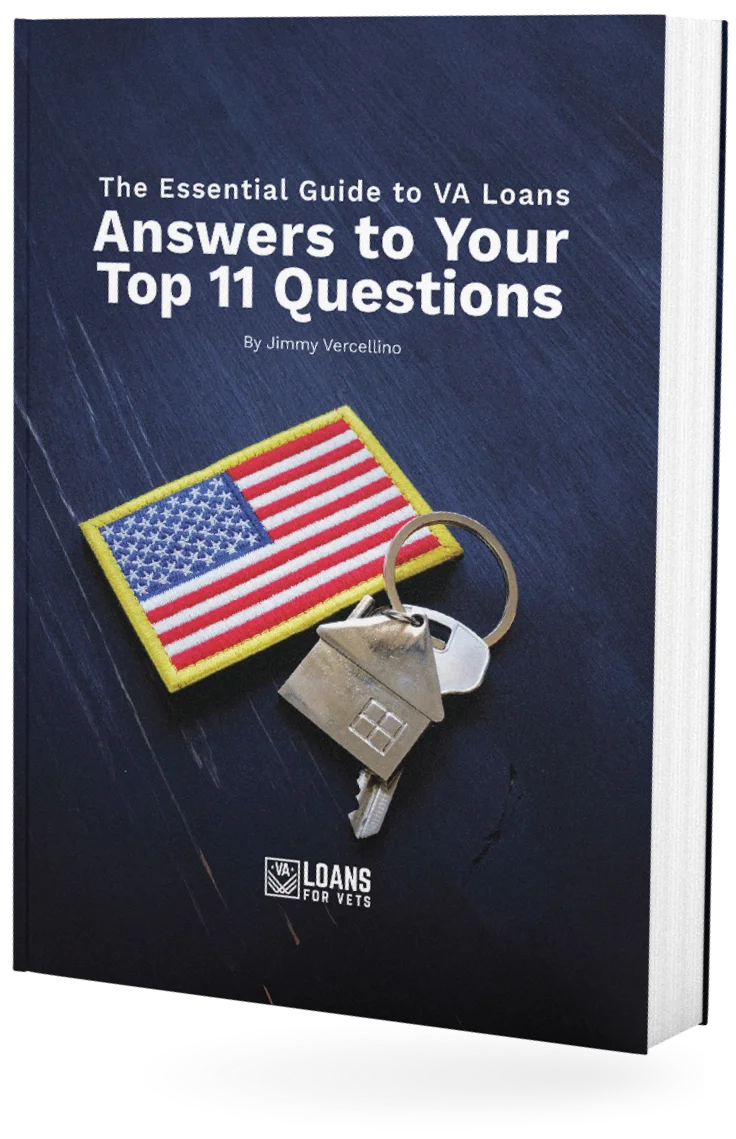A commonly asked question for service members and veterans when they are looking to purchase a home is what type of loan is best? The short answer is that it depends on individual circumstances.
This article discusses the differences between VA loans and conventional loans, the benefits of each loan, who qualifies for each loan, and the overall loan requirements.
What is a VA Loan?
VA home loans are provided by private lenders to military service members, veterans, and eligible surviving spouses to purchase a home, complete home improvements, or refinance a mortgage. These home loans are backed by the U.S. Department of Veteran Affairs which guarantees a portion of the loan to the lender if the borrower defaults on the loan.
Benefits of a VA Loan
Since VA loans are guaranteed by the government, mortgage lenders can offer flexible loan terms regarding income and credit requirements. The most common loan benefits include:
- No Down Payment
- No Private Mortgage Insurance
- Competitive Interest Rates
- Lenient Credit Requirements
- Limited Closing Costs
- No Loan Limits
- No Penalties for Early Payoff
Who Qualifies for a VA Loan?
You may qualify for a VA loan if you meet one or more of the following requirements:
- You served 90 consecutive days of active service during wartime.
- You served 181 days of active service during peacetime.
- You have 6 years of service with the National Guard or Reserves or served 90 days (minimum of 30 days consecutively) under Title 32 orders.
- You are the spouse of a service member who died while serving or due to a service-connected disability.
What is a Conventional Loan?
A conventional loan is a type of mortgage that is not backed by a government agency such as the Department of Veterans Affairs. As you will find, conventional loans tend to have strict requirements when it comes to credit scores and down payments.
Benefits of a Conventional Loan
Although conventional loans offer fewer benefits than a VA loan, listed below are the most common benefits of conventional loans:
- Rewards Good Credit with Lower Interest Rates
- Can Be Used for Different Home Types (Second Homes, Vacation Homes, Rental Properties, etc.)
- Less Paperwork than a VA Loan
- Less Expensive Closing Costs
Who Qualifies for a Conventional Loan?
Qualifying for a conventional loan is not like qualifying for a VA loan. Conventional loans are based on what you bring to the table financially whereas VA loans are based on service. Below are the minimum qualifications for a conventional loan:
- Minimum Credit Score of 620
- Minimum Down Payment of 3% to 5%
- Debt-to-Income Ratio Below 43%
- Proof of Stable Employment and Income
- Clean Credit History (No Bankruptcy or Foreclosure)
VA Loan vs Conventional Loan Requirements
These types of loans seem radically different. As you will find, there are many advantages to being eligible for the VA loan program. For simplicity, below is a table comparing the loan requirements side by side.
| VA Loan | Conventional Loan | |
| Eligible Properties | Primary Residence Only | Primary or Secondary Residence; Investment/Rental Properties |
| Minimum Credit Score | Not Set by VA | 620 |
| Debt to Income Ratio | Not Set by VA | 36% to 50% |
| Down Payment | 0% | 3% |
| Loan Limits | No Limit | $726,200 (One Unit Home) |
| Mortgage Insurance | No | Required if Down Payment is < 20% |
| Fees | Closing Costs and Funding Fees | Closing Costs |
Explanation of Loan Requirements
Above is a table discussing the basic requirements for each type of loan. This section goes into depth about each requirement.
Eligible Properties
VA loans are only approved for primary residences. They may cover two homes if the veteran stays at each property for a minimum of six months out of the year. This is typical if the veteran travels for work.
Conventional loans approve all types of housing – from primary, secondary, vacation homes, and rental properties. There is no limit on how many of each type of home you can have with conventional home loans.
Minimum Credit Score
The Department of Veteran Affairs does not have a required minimum credit score. Each lender has their own credit score requirements. If you find that a particular lender is requesting a high credit score, check with other lenders. Lenders are comfortable offering loans to veterans with lower scores because the loan is backed by a government agency.
This simply means that if a veteran defaults on their home loan, the VA will pay out a percentage of the loan to the lender. However, conventional loans do not have the same guarantee so they typically require a 620 credit score. The higher the credit score, the better the mortgage rate you will receive.
Debt to Income Ratio
The debt-to-income ratio or DTI is the sum of all monthly debt payments divided by the gross monthly income. This is how lenders judge if you will be able to successfully pay the mortgage. Similar to the credit scores, the VA does not have a DTI requirement but individual lenders do.
The requirement for conventional loan lenders tends to vary from 36% to 50% with the goal being 43%.
Down Payment
A VA loan does not require a down payment. Conventional loans require a minimum of 3% as a down payment with no set maximum. Depending on your down payment, you may have to purchase mortgage insurance.
Loan Limits
VA loans do not have loan limits unless the borrower has defaulted on a loan before or if they have two or more VA loans out.
Conventional loans have a loan limit of $726,200 for single-unit homes and $1,089,300 for multi-unit homes.
Mortgage Insurance
VA loans do not require mortgage insurance whereas conventional loans can require it. If you have less than 20% of a down payment, then you will be required to have mortgage insurance on a conventional loan. This is added protection for the lender.
Fees
When thinking about fees, we typically think of closing costs. For conventional loans, the only fees are the closing costs, but there are other fees included with a VA loan.
VA loan fees are closing costs plus a VA funding fee that ranges from 0.5% to 3.6% of the loan amount.
Which Loan Option Is Right For You?
Overall, it depends on your circumstances. If you have a low credit score and qualify for a VA loan then the VA loan may be best for you. However, if you are looking to purchase a secondary home, vacation home, or investment property then a conventional loan will be best.
If you qualify for both types of loans, it is recommended that you compare the requirements and the interest rates before deciding on which route to take. It is recommended to speak with a loan adviser to verify eligibility and to see which loan is best for you.
VA Loans with VA Loans for Vets
If you are an active duty service member, veteran, or surviving spouse you may qualify for a VA home loan. The first step is to obtain a certificate of eligibility or COE.
The US Department of Veterans Affairs has the form available here for you to print and mail or you can request a COE online through eBenefits. Some lenders can use an online system called Web LGY to retrieve a copy of your COE.
If you are looking to purchase a home but are not sure if you qualify, check your eligibility today or contact the VA Loans for Vets team at (602) 908-5849 to begin the process.



